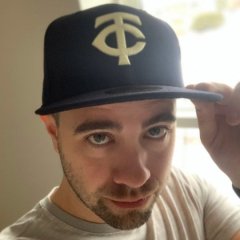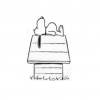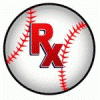Leaderboard
-
in all areas
- All areas
- Images
- Image Comments
- Albums
- Album Comments
- Files
- File Comments
- Events
- Event Comments
- Blog Entries
- Blog Comments
- Topics
- Posts
- Articles
- Article Comments
- Help Files
- Videos
- Video Comments
- Players
- Player Comments
- Players
- Player Comments
- Rumors
- Rumor Comments
- Guides
- Guide Comments
- Players
- Status Updates
- Status Replies
-
Custom Date
-
All time
July 26 2014 - February 16 2025
-
Year
February 16 2024 - February 16 2025
-
Month
January 16 2025 - February 16 2025
-
Week
February 9 2025 - February 16 2025
-
Today
February 16 2025
-
Custom Date
05/13/2020 - 05/13/2020
-
All time
Popular Content
Showing content with the highest reputation on 05/13/2020 in all areas
-
Bill James brought this up in his (I think) 1986 Baseball Abstract. It ain't strategy if everyone does it. It is a rote tactic. The pitcher is coming up to the plate late in the game so you pinch hit, or if the pitcher is up and he bunts. He showed there was a lot more "strategy" in the American League because the choices were much more varied (the standard deviation of bunting, pinch hitting, sacrificing, etc) in the American League vs. the National. Having the DH gave the manager a wider range of tactical choices than in the National. But his other point is why do people think "bunting" is such a big strategic concept?2 points
-
Scholar and a gentleman2 points
-
Here you go!2 points
-
Despite being a life long Twins fan, my viewing of baseball on TV was regulated mostly to Cubs, Braves and Mets games in my youth as my cable provider carried stations with these teams. I always found it frustrating and disappointing to watch pitchers flail at the plate. And I always have laughed at the "strategy" of inserting a PH in the 6th or 7th inning with a possible rally. That's not intelligent strategy, it's putting in a better hitter. Even in the AL that is done. I read an article, many, many years ago that discussed the differences in the AL vs NL game. The NL had the reputation as being a more defense minded league who played more to speed and situational hitting. (Things I enjoyed and still do). The jist of the article is the NL teams largely played in larger parks than their AL counterparts, and also had more turf fields vs grass. Thus they adapted their game as such. Everything from ballparks to hitting approaches have changed over the years. The entire bunting, SB and situational hitting format of years past has changed. Its time for a universal DH. Let pitchers pitch. Players aren't expected to pitch, so why must pitchers be mandated to hit? I've always felt AL teams in NL parks were at a disadvantage. While the arguement can easily be made that NL teams, at this time, are not necessarily equipped with a quality DH option, they are still replacing a generally poor hitter with a better one. Further, they may have a poor defender playing a position for his bat, but can let him DH in favor of a better fielder taking his spot against an AL opponent. It's time to make this a universal change.2 points
-
Breaking Down the Latest Steps Toward a 2020 MLB Season
DocBauer and one other reacted to Major League Ready for a topic
I spent 25 years evaluating strategies for large companies. Never did one base their expectation or desire for profits on previous earnings, That concept gets batted around frequently by fans but it has no basis in reality in the real world. We could make the same type of statement about players. Their compensation is absurd relative to the rest of the world and we have no problem when they look to maximize their earnings. Somehow the same logic is not followed when assessing the actions of owners.2 points -
I enjoyed the Dozier videos. Guy was hot and cold but awesome when hot. Wish video had included the base hit he got off the end of the bat that landed foul and spun back fair. Couldn't find it anywhere.1 point
-
The fact that the players do not want to be in a city they would need to rent a place. That was one of the major things I read players did not like about the AZ FL plans. They would be away from their homes and family for months with little to no chance to see them. Sure they could try to bring family with them, but that means uprooting their family as well. I know I would not be happy to have to be away from my family for 4-6 months I was not expecting. Also, the additional cost of having to have a second home in the short term home area. Travel is not an issue of safety, as they charter planes anyways so only team and team officials would be on plane, but an issue of time. With having less off days, this would be less travel days, so reducing the distance on the plane helps. I mean you can have 9 game road trip and between the travel sites never get on plane if you do Milwaukee, Chicago, Chicago trip. Fly to one, that takes an hour, then bus between Milwaukee and Chicago takes like an hour to two. Also, I wrote in another comment in the past that the home place is not just about fans, it is about the team set up for the park. Our team is set up to allow fly balls, but we are in a park that tends to be little in favor of that, not like some but much better than others. Imagine if we had to play all our games at Yankee stadium, not that it would be likely, just using as example. HR fly out of right field like none other. There are many other HR friendly parks that would not serve well for our pitchers. May be better for our hitters, but you build your team with fact that 81 games should be played in your park.1 point
-
Twins All-Decade Team, the '10s (The Hitters)
mikelink45 reacted to twinfan for a topic
I can't see Plouffe being better than Sano but it's hard to put Cruz in there on one season. I guess there was not much else to choose from but you could put Sano at third and let Garver be the DH. As far as Buxton, we are still going on potential which has only shown itself in one season. I really liked Escobar and am sorry the Twins traded him.1 point -

How the MLB’s Latest Plan Might Benefit the Twins
wavedog reacted to Tom Froemming for a topic
Something I don't get is if there aren't going to be fans, why is it important for the games to be played in the home stadiums? Even with sticking to only playing teams in the same region, that still seems like a lot of extra needless travel.1 point -

Everyone Hits as Baseball Embraces the DH
Minny505 reacted to Tom Froemming for a topic
My guess is once every NL fan has a year or two to get accustomed to the DH they'll never want to go back.1 point -
Breaking Down the Latest Steps Toward a 2020 MLB Season
glunn reacted to Major League Ready for a topic
Bravo! Finally someone looking at this logically rather than emotionally. I was listening to MLB radio yesterday and they were waxing on about how the players should not have to take anything less than full compensation. My first thought was along the same lines as your first sentence. Passing judgment without even knowing the numbers demonstrates a point of view developed from bias. Normally, we could estimate revenue pretty accurately. In this case, we don’t know when or if fans will be allowed to return. The Twins TV Revenue is roughly $40M/yr or roughly 15% of last year’s revenue. Of course, there are other sources outside of attendance but gate receipts have to be in the neighborhood of two-thirds of the team’s revenue. No fans equates to total revenue of less than $50M for the Twins. Am I missing something? Half of player salaries would be $70M plus whatever it costs for travel and other operating costs. There is no chance owners are going to accept an agreement that potentially increases what they have already lost this year. I don’t think the player’s hang-up is the 50% number. Best case scenario is fans return in limited number for what would be the last quarter of the season. Accepting a revenue split would mean players would very likely take a substantial pay cut. From an owner’s perspective, it is highly unlikely a 50% revenue share will produce any profit. I would assume their desire to play this year is motivated by long-term concerns starting with maintaining fan support.1 point -
I don't know who deserves to be shamed here, because I don't know the numbers. When parties are at an impasse, sometimes the solution is to expand the deal. Revenue sharing seems to work in other sports. Maybe the answer is to go to revenue sharing for three years, perhaps with the players getting 55% this year, then 53% next year and then 50% the following year. . Another solution would be for the owners to give any profits for this season to the players. This would make sense to me as an owner, because otherwise I will probably be facing a loss. In one of the worst years ever, if I were an owner I would consider any deal that allows me to merely break even. And an owner facing a $10 million loss would still be better off with a $5 million loss. I wish that we knew the numbers. I hope that the owners are sharing their projections with the players. If not, then shame on the owners.1 point
-

MLB’s 2020 Draft Will Hurt the Twins
DocBauer reacted to Nine of twelve for a topic
I expect that there will be little to no independent minor league ball this summer. Even if some leagues do operate there will be way more players hoping to play than there will be roster spots. But in any case I think you are right about the free-for-all for those players if things are more or less back to normal by the off-season. I'm pretty sure they will all be free agents under the current rules.1 point -

Do the Twins Need to Shift Better?
Trov reacted to Nine of twelve for a topic
Willie Keeler. "Wee Willie" was 5'4", 140 lbs. He hit .424 in 1897.1 point -
From the proposal submitted by MLB I do not expect players to agree today. I think they will come to an agreement, but as the players union president stated, the 50/50 split is a salary cap, something that has been sneaking into baseball with luxury tax, but players have been against since FA started. So they will not just say yes. However, if the alternative is no money, that is hard to swallow for players. Sure many would be able to survive for a year without getting paid, if they planned ahead. Not many people expecting to get paid plan to not too though. For the people that just want the owners to pay full prorated contracts and most likely lose millions of upon millions of dollars, because they can afford to, you most likely have never owned a successful business. The owners do not own teams because they are willing to lose money. Sure, some owners make so much money with other business and willing to just break even for wins, but those are also when owned by single owners. Most teams are owned by groups with a main owner. Many of the minority owners will not say, hey it is fine if I lose millions this year. Business do not live long if being operated in red for extended periods. I think both the players and owners should think about the "regular employees" that need the paycheck and what a full no season would like for them. Already, many employees are not working and won't work even if a season does start with no fans. Many teams have agreed to pay these people for now, but for how long? If owners need to pay players more that may make employees get laid off. Overall, the owners always hold all the power. They can just say no season no one gets paid go find a day job, to the non-superstars that have already been paid. It always comes down to the owners on if baseball happens. They do it for money, not charity. They do it get our money to put in their pockets. They need the players to have a product, but this day in age, this is not the owners main source of income, but a side job. Players have grabbed a lot of power for themselves with having no salary cap, but the owners could shut it down completely if they wanted to. I am not saying either side is right or wrong to want what they want. I am just point out who has the real power, but as these two side fight over money, it affects many people that need their paychecks. Owners want to make money, so do the players. For that to happen they need each other.1 point
-

Which 1960's Minnesota Twins Team Was the Best?
DocBauer reacted to Tom Froemming for a topic
The easy knee-jerk reaction would be to say "1965, duh!" but of course that '69 team was great, and looking at this it's a wonder how the '67 team didn't fare any better than 91-71. Seems appropriate there was a mid-season managerial change. Jim Kaat was snake bit that season. Somehow the Twins were just 17-20 in games he started. In late August of that year, Kaat gave up one earned run over eight innings in back-to-back starts and the Twins lost both of them. Ugh. Seems like it was just a year where nothing synced up like it could have.1 point -

Breaking Down the Latest Steps Toward a 2020 MLB Season
Squirrel reacted to Tom Froemming for a topic
Proposing to base salaries off revenues is a joke. I'm shocked the owners have the nerve to even go public with this.1 point -
Concur. The rationale for why players don't get an even bigger share of the pie than they do, is that "the owners incur all the risk." So now in 2020, out of the blue and without warning, the risk turns into an actual decrease in revenue that may have lasting implications or may sort itself out by 2021. Instead of covering the shortfall, the talk is immediately about give-backs, and plenty of fans are on-board with the billionaires, whom they can identify with so much more readily than with the millionaires. What exactly is the value-proposition the owners bring to the table, again? They are acting like glorified CPAs, informing the players how the books look. Accountants aren't generally the highest paid employees in an organization.1 point
-

Breaking Down the Latest Steps Toward a 2020 MLB Season
Squirrel reacted to Nick Nelson for a topic
The Twins have claimed to operate on a model that calls for investing 51% of revenue into payroll. We all know that wasn't happening from 2012 through 2016 or so (at the very least). You tell me where that money is going. I dunno. I would assume back into the Pohalds' pockets. To my knowledge it didn't go to employees or charity. And no, I would not say it is the same thing as what you laid out, since MLB owners are billionaires by rule (restaurant and small business owners not so much) and baseball teams by nature have extremely variable spending patterns. The Twins for example were slated to spend about $60M (70%) more on payroll in 2020 than they did in 2014. Do you think they were planning on 70% more revenue? In any case, I don't think it's appropriate to treat this situation like business as usual. To be frank, I believe that ultra-rich people and billionaires should be making sacrifices in all phases of society right now. I understand that baseball players are also generally quite rich, but much less so, and they are assuming ALL OF THE RISK in this scenario. If you disagree with my basic philosophy here that's fine, but it's how I feel.1 point
-
Recent News
-
Recent Blog Entries
-
Recent Status Updates
-
I really hold back what I would like to say about then payroll arguments here. The fact that people don't accept the amount taken in dictates the amount going out requires one of two things. Extreme financial ignorance or fanatical bias that prevents the acceptance of something some basic. I did not change the argument. It's the same idiocy over and over. Do you really want to be on the side that suggests revenues does not determine spending capacity?· 0 replies
-
Popular Contributors
-
Who's Online (See full list)
- There are no registered users currently online














